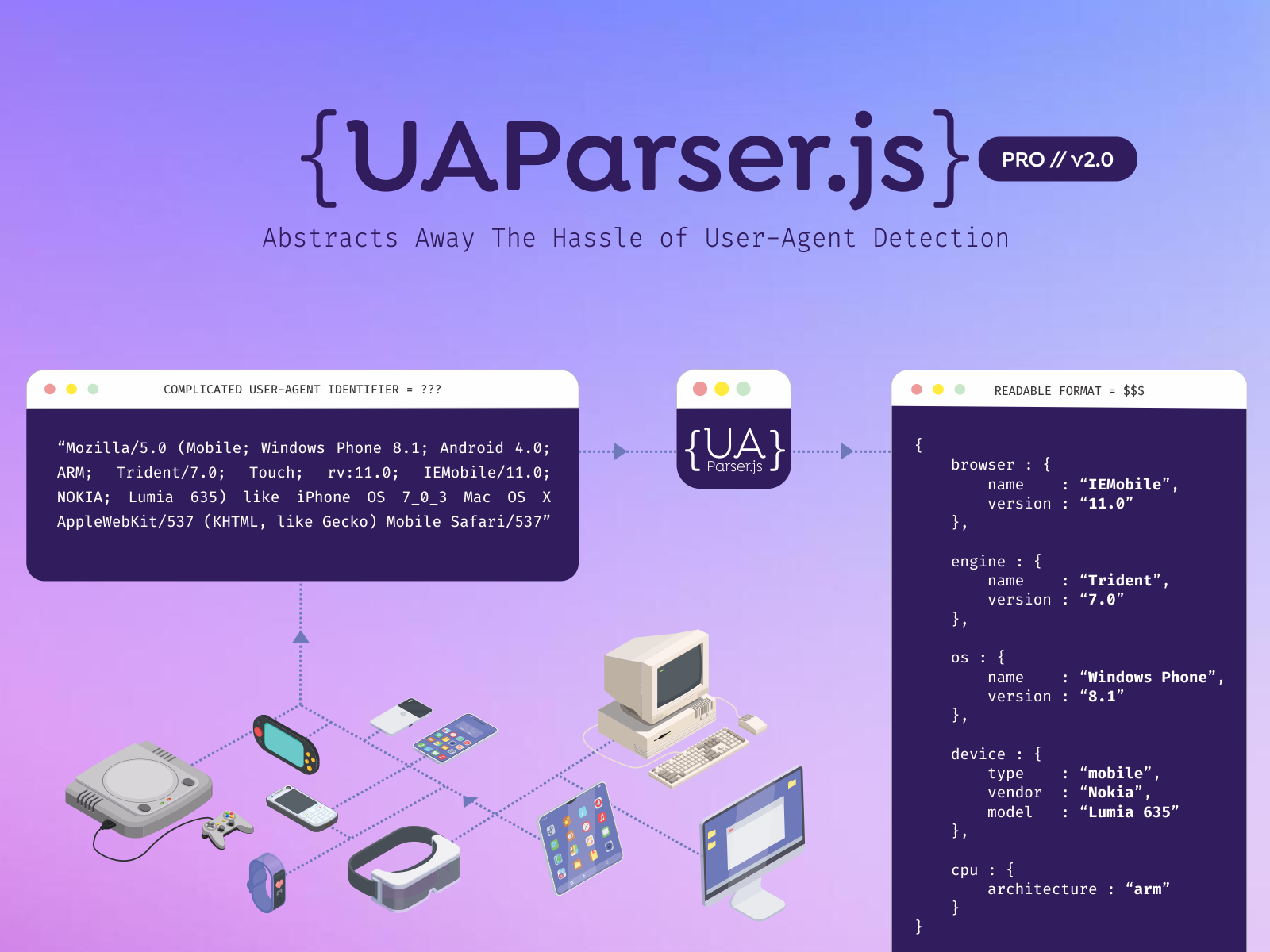Integration
- ua-parser-js:
ua-parser-js is a standalone library that can be used in any JavaScript environment, including Node.js and browser applications. It does not depend on any frameworks, offering flexibility in how and where it can be implemented.
- react-device-detect:
react-device-detect is tailored for React applications, allowing developers to easily access device and browser information within React components. Its API is designed to work seamlessly with React's component lifecycle, making it simple to implement conditional rendering based on device type.
- express-useragent:
express-useragent is designed specifically for Express.js applications, providing middleware that allows for easy integration into your existing request handling. It enhances the request object with user agent information, making it readily accessible for route handling and response customization.
Feature Detection
- ua-parser-js:
ua-parser-js offers comprehensive user agent parsing, allowing for detailed detection of browser versions, operating systems, and device types. It provides a rich set of data that can be used for analytics and feature detection.
- react-device-detect:
react-device-detect excels in feature detection, enabling developers to render specific components based on the detected device type, operating system, and browser. This allows for a more tailored user experience, especially in responsive design scenarios.
- express-useragent:
express-useragent provides basic device detection capabilities, allowing you to distinguish between mobile, tablet, and desktop devices. However, it may not cover all edge cases or provide detailed feature detection beyond the user agent string.
Performance
- ua-parser-js:
ua-parser-js is designed to be fast and efficient, with a focus on minimizing the processing time required for user agent parsing. It is suitable for both client-side and server-side applications, ensuring quick responses.
- react-device-detect:
react-device-detect is also lightweight and designed for efficient use in React applications. It minimizes the performance impact by allowing developers to conditionally render components based on device detection, which can help reduce unnecessary rendering.
- express-useragent:
express-useragent is lightweight and optimized for performance within Express.js applications. It adds minimal overhead to request processing, making it suitable for high-performance web applications that require quick user agent parsing.
Ease of Use
- ua-parser-js:
ua-parser-js has a simple API that is easy to use in any JavaScript context. Its documentation provides clear examples, making it easy for developers to get started with user agent parsing.
- react-device-detect:
react-device-detect is user-friendly for React developers, providing a simple API that integrates directly into React components. This ease of use makes it accessible for developers of all skill levels.
- express-useragent:
express-useragent is straightforward to implement in Express.js applications, requiring minimal setup. The middleware approach allows for easy access to user agent data without extensive configuration.
Community and Support
- ua-parser-js:
ua-parser-js has a broad user base across various JavaScript environments, leading to a rich set of community resources and contributions. Its active maintenance ensures it stays up-to-date with changes in user agent formats.
- react-device-detect:
react-device-detect has a growing community of React developers who contribute to its development and provide support. The library is actively maintained, ensuring compatibility with the latest React features and updates.
- express-useragent:
express-useragent benefits from the large Express.js community, which provides a wealth of resources, tutorials, and support for developers. This community aspect can be invaluable for troubleshooting and best practices.












